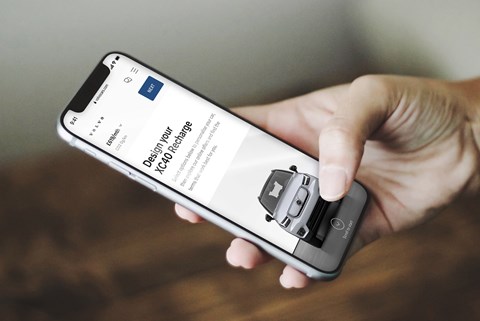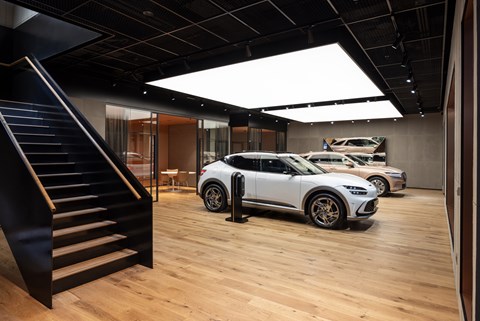► Online car sales in Europe: Care by Volvo service winds down
► Experiments in digital car buying have had mixed results
► Some car makers have tried, only to go back to old habits
Volvo has begun the process of winding down its Care By Volvo service.
In a statement on 16 September 2024, Volvo said: ‘Volvo Cars has begun the process of reviewing its in-house leasing operations in certain markets in Europe and to transfer active contracts to new partners with the aim of ensuring a seamless changeover of finance providers. The decision to move away from in-house leasing to a partner-based set-up is to ensure we are providing products that suit customers’ needs, while at the same time ensuring we are allocating resources towards further digitising our whole business.’
The service has been seen as a novel part of a wider trend regarding buying your car online. Many car makers and businesses in the industry allow you to purchase a new or used car without ever needing to venture into a dealer or showroom.
Care by Volvo: what happens now?

Volvo’s Care by Volvo scheme, an in-house ‘subscription’ service that bundled ownership of the car, servicing and more besides will be closed in the UK and US, or transferred to external partners in countries like Germany and the brand’s home market of Sweden.
The subscription was seen as a pioneering addition to the process of buying a car online, with the brand having hoped to shake up the market with its idea of treating your new car more like taking out a phone contract. The brand’s Care By Volvo service had no deposit or balloon payment at the end of a term, but meant a pretty hefty monthly fee to make up for it.
However, the scheme didn’t seem like a massive success. A spokesperson for the brand told CAR in December 2023 that it sold ‘over 12,000’ cars via Care by Volvo since it was introduced in the UK in September 2020. That’s a relatively low proportion given it sold around 50,000 cars in the UK in 2023 alone.
As the services closes in the UK and is to be handled externally in European markets, Volvo says that it will continue to sell its cars via a digital storefront and offer traditional financing options via loans or leasing arrangements instead.
Buying a car online: why do it?
It means more control for the car maker on price, and a more direct way of reaching out to the consumer. Buying a car online is billed as being quick and easy – and allows customers to avoid pushy salespeople. As well as offering digital storefronts that allow you to configure your new car and order it from your computer or phone, some even offer additional services like direct delivery and collections (including collections for servicing, in some cases).
‘It’s a very digital offer,’ Björn Annwall, Volvo’s chief commercial officer, told CAR in 2023. He says one big weakness with the traditional approach is the likelihood that a car in the right spec will be in the wrong place at the wrong time. ‘Here it gets shipped directly to you when you order it.’
When Genesis – the Korean luxury car brand – officially launched in Europe in 2021, it originally didn’t rely on dealership locations spread in high-population areas like many other car makers. Instead, it used ‘studios’ in urban locations (there were originally two Genesis Studios in London and one in Edinburgh for its UK business), with every other part of the buying and aftersales process service being performed remotely. Polestar, too, follows a similar model.

Buying a car online: why it’s not been that simple
Some buyers still want the tactility of looking at their next car up close ‘in the metal’, and even some of the manufacturers who’ve implemented online buying know there are limits. Back in the middle of 2023, an industry insider told CAR: ‘I’ve done the online stuff and the shopping malls, but it keeps reverting [to traditional dealerships] when all the hype has cut through. Look at Genesis, for example: they’ve recently announced they’re looking for retail partners, because they’ve reached a point where the online stuff can’t work any more.
‘Most of these models appear to work in the short term, but if you look back over the last three or four years, they’ve then morphed back into a traditional model much more quietly. All of a sudden, you realise that you’re selling around 60 to 70 per cent of your cars the same way as everybody else.’
And it’s true: Genesis’ chief brand officer Graeme Russell admitted earlier in 2023: ‘I think our larger markets, like Germany or the UK, will need an evolution of that model. Working with agency partners [i.e. more physical locations, but where the brand directly controls pricing and inventory] is a recognition that in order to achieve the potential of getting a brand to scale, we need to find the right partners.’
And that was the plan, in order to shift more units in its fledgeling European markets. Seven partners for the UK were initially located by June of 2023. But, by the end of 2023, it wasn’t enough for the brand in the UK market. Genesis’ UK operations as a separate entity have been wound down as the brand changes its business strategy; the brand will still sell cars in the UK, but via Hyundai dealerships as the restructured business is absorbed into Hyundai Motor UK as of 2024.
Buying a car online: what happens next?
Volvo acknowledges buying a car online isn’t for everyone, and nor are subscriptions. Some customers still need that touchy-feely experience, and the company still needs locations for aftersales services and maintenance. ‘The need for a physical infrastructure is still there – you can’t stream a car – but over time it will be reduced,’ Annwall told CAR in 2023.

While other manufacturers are almost entirely abandoning the idea. ‘Mainstream customers want to buy – and I want to underline this – want to buy a car in a dealership,’ says Luca De Meo (pictured above), boss of Groupe Renault, speaking during the Group’s Ampere Capital Markets Day in November 2023 and emphasising the point while discussing Renault’s growing range of EVs. ’70 per cent of them, according to our research, want to do that – against only around 30 per cent for early EV adopters. That’s where the Renault network in Europe takes the stage with its 4800 dealerships and 8000-strong service points, as well as 30,000 EV-trained technicians. This isn’t something a fancy website can replace.’